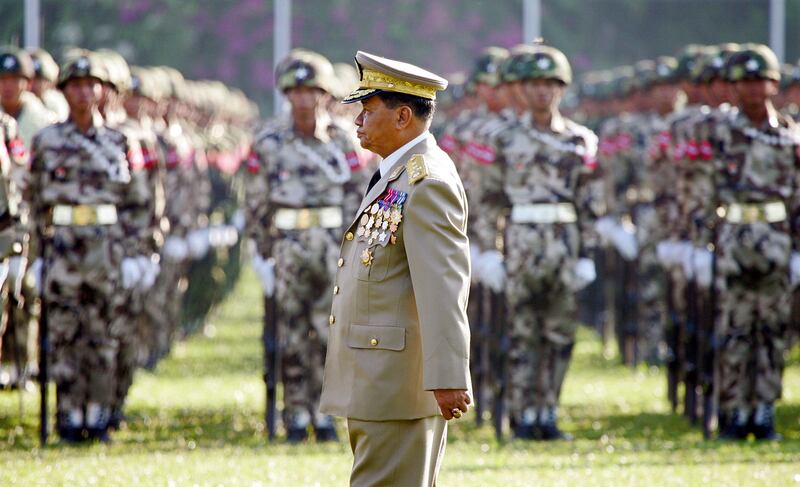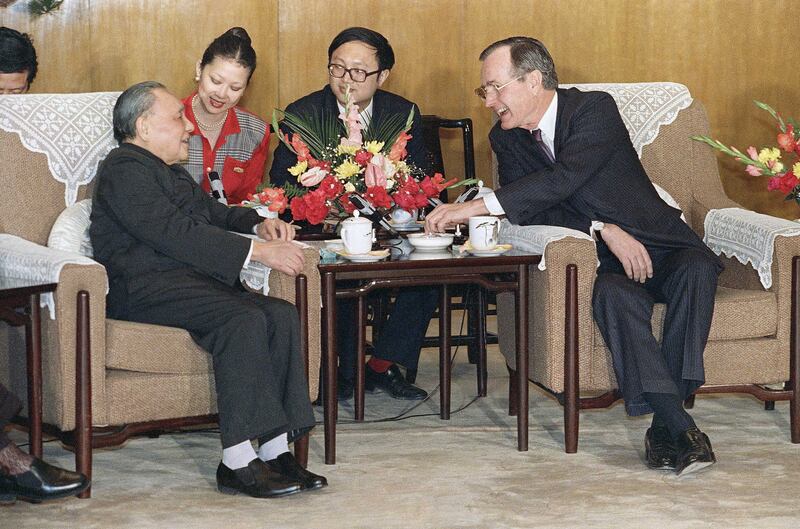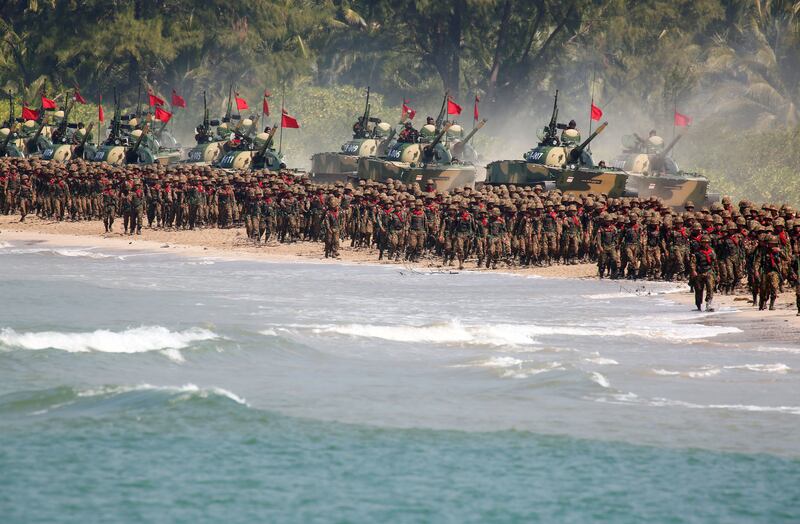The story Southeast Asia likes to tell itself is that, by the late 1990s, it had something like its “end of history” moment.
By 1999, the region was free of colonialism, with the last push made by Timor-Leste, which that year held a referendum to throw off Indonesian imperialism. With that development, the region’s national borders appeared to be finally decided and revanchism, although it was still voiced on the fringes, had ended.
All Southeast Asian countries, except Timor-Leste, were members of ASEAN. Communist Vietnam and Laos were stable and internationally accepted. Anti-communist tyrants like Indonesia’s Suharto, Burma’s Ne Win and Ferdinand Marcos in the Philippines had either resigned or been ousted.
And the worst crimes of the Cold War-era, including the Khmer Rouge genocide in Cambodia, were not just over but there was to finally be some sort of justice. In 1999, the holdout Khmer Rouge leaders finally surrendered and Ta Mok, its former army chief, was symbolically arrested by the local authorities.
Today, however, Southeast Asia finds itself trapped by history.
On the one hand, it became evident in February 2021 that not all of 20th-century history was over. The military coup in Myanmar that month awakened many to the reality that some elements of the pre-Cold War period had not been solved.
Indeed, Myanmar has been trapped in the early 20th century since independence from Britain in 1948. Whereas all other Southeast Asian threw off their colonial powers and then resolved their internal battles over what form of government would follow, Myanmar did not.
Myanmar as outlier
Anti-colonial struggles are conflicts against a foreign aggressor and civil wars at the same time. It is not enough to claim self-determination; it must be determined what sort of self you want once free.
The partition of Vietnam was both things at once. Many historians date the Cambodian Civil War as beginning in either 1967 (with the Samlaut Uprising) or 1979 (with the Lon Nol “coup”) but those same political schisms were latent, though blanketed, under Nordom Sihanouk’s regime that ruled after independence.

The People’s Power uprising in the Philippines in 1986 was essentially the answer to the question — constitutional or personalist rule — that was posed when the country gained independence from Spain in 1898, and, indeed, was the internal debate within almost all of José Rizal’s writings.
But Myanmar never went through this process — or, rather, successive military juntas never allowed the question to be seriously explored. The 1962 coup effectively froze in time the question of self-determination of Myanmar’s myriad ethnic minorities, a remnant of colonial rule.
In two ways, Myanmar under the military remained a colonial holdout: The Bamar center colonized the ethnic periphery and the anti-colonial struggle was never allowed to fully run its course. The cataclysm of the 2021 military coup appears to be the event that will finally bring this historical question to a proper solution.
The answer offered by the anti-junta movement, centered on the National Unity Government, is a revolutionary federal state, in which Myanmar maintains its same territorial borders but vastly more power and autonomy is given to the ethnic areas, while at the same time the national army, a product of anti-colonialism, will be dissolved and something (perhaps a network of militias) will take its place.
The junta’s answer, the same that its predecessors offered, is devolution based on the permission of a central authority, implemented through peace talks. The problem with this answer, as has been the case in the past, is that it is dependent not upon rules or laws but the whims of whichever general is sitting in Naypyidaw, so essentially yet another delay in answering the post-colonial civil war question.
Yet, for now at least, according to some hopeful observers, the forces of revolution are prevailing over the forces of reaction in Myanmar.
Baked-in crisis
Alas, the rest of Southeast Asia seems unwilling to accept that a historical reckoning must happen in Myanmar for there to be any progress.
One can put aside the fatuousness of permitting Myanmar entrance into ASEAN in 1997 before those civil-war conflicts were solved, yet ASEAN still doesn’t accept that by doing so it institutionalized those conflicts into the regional system.
In other words, by accepting Myanmar into the ASEAN bloc, the rest of the region (perhaps) unwittingly accepted a share of responsibility for solving those historical conflicts. This point is still not appreciated by ASEAN in its continued insistence that the solution to the current crisis is to return to a point in time: the status quo ante.

Yet, even if that return was feasible, which it isn’t, ASEAN would still be left with the situation of Myanmar’s 20th-century conflicts sparking another similar crisis at some point in the future.
ASEAN is, therefore, trapped in apparently thinking that Myanmar is unique in that it won’t have to go through the same bloody processes that the rest of the region did — a final reckoning of post-colonial civil wars — and clearly thinks that the region’s responsibility is to forestall, not assist, this process.
On the other hand, Southeast Asia is also in a history trap of believing that the post-Cold War era is still alive.
It can be fairly said that the region, aside from China, was the biggest beneficiary of the world order left after the collapse of communism in Europe. A cursory look at how the region has developed economically, culturally and socially since 1989 is enough to make that argument.
But what should we call the period between 1989 and, roughly, 2019? The “Chimerica Era”, that chimera when the United States and China thought they could get along and when the West thought that Beijing was playing by the same rules? Or, perhaps, the “Inter-Cold War Era?”
Nostalgia not enough
In any case, that period is now over. Yet, Southeast Asia’s leaders still think that they can deny its disappearance by repeatedly stating their opposition to what has come after – a “New Cold War” – as if denying something’s existence makes it not exist.
They hold onto the hope that Washington and Beijing will finally see sense and agree that because things were much better for all in the 2000s that should be their shared vision for the future.
If there is a purpose to “hedging”, it is presumably to play both superpowers off against one another to extract the most benefits. Yet the downside is that you make yourself dependent on both sides, as has been the case: As a share of overall ASEAN trade, the United States and China have taken on a larger, not smaller, percentage in recent years.

Hedging, as manifested today, is to take both sides, rather than to take neither side. That is problematic, to say the least, if there is a possibility of both sides going to war, when you will be forced by events outside your control and at a time not of your choosing to decide which side to take.
None of this is unreasonable from an emotional level; it’s only natural for Southeast Asian leaders, by 1999, to have been jubilant that the horrors of the 20th century were over and that their societies could finally have the stability to become prosperous – thanks to the Inter-Cold War Era.
It’s only natural to want the good times to continue. Sadly, they’re over and the world is once again a far more unstable and unpredictable place, including in ASEAN’s northwest. Nostalgia for times past will only get you so far.
David Hutt is a research fellow at the Central European Institute of Asian Studies (CEIAS) and the Southeast Asia Columnist at the Diplomat. As a journalist, he has covered Southeast Asian politics since 2014. The views expressed here are his own and do not reflect the position of Radio Free Asia and RFA sister organization BenarNews.
